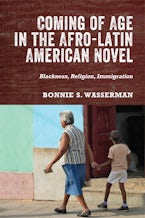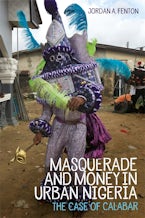
Title Details
330 Pages
22.8 x 15.2 cm
23 b/w illus.
Series: Rochester Studies in African History and the Diaspora
Series Vol. Number:
50
Imprint: University of Rochester Press
African Police and Soldiers in Colonial Zimbabwe, 1923-80
- Description
- Contents
- Author
- Reviews
A look at the ambiguous experience of black security force personnel in white minority ruled colonial Southern Rhodesia [now Zimbabwe].
Making use of archival documents, period newspapers, and oral interviews, African Police and Soldiers in Colonial Zimbabwe, 1923-80 examines the ambiguous experience of black security personnel, police, and soldiers in white-ruled Southern Rhodesia (now Zimbabwe) from 1923 through independence and majority rule in 1980. Across the continent, European colonial rule could not have been maintained without African participation in the police and army. In Southern Rhodesia, lack of white manpower meant that despite fear of mutiny, blacks played an increasingly prominent role in law enforcement and military operations and from World War II constituted a strong majority within theregular security forces.
Despite danger, Africans volunteered for the police and army during colonial rule for a variety of reasons, including the prestige of wearing a uniform, the possibility of excitement, family traditions, material considerations, and patriotism. As black police and soldiers were called upon to perform more specialized tasks, they acquired greater education and some -- particularly African police -- became part of the emerging westernized African middle class. After retirement, career African police and soldiers often continued to work in the security field, some becoming prominent entrepreneurs or commercial farmers, and generally composed a conservative, loyalist element in African society that the government eventually mobilized to counter the growth of African nationalism. Tim Stapleton here mines rich archival sources to clarify the complicated dynamic and legacy of black military personal who served during colonial rule in present-day Zimbabwe.
Timothy Stapleton is Professor of History at Trent University in Ontario.
Making use of archival documents, period newspapers, and oral interviews, African Police and Soldiers in Colonial Zimbabwe, 1923-80 examines the ambiguous experience of black security personnel, police, and soldiers in white-ruled Southern Rhodesia (now Zimbabwe) from 1923 through independence and majority rule in 1980. Across the continent, European colonial rule could not have been maintained without African participation in the police and army. In Southern Rhodesia, lack of white manpower meant that despite fear of mutiny, blacks played an increasingly prominent role in law enforcement and military operations and from World War II constituted a strong majority within theregular security forces.
Despite danger, Africans volunteered for the police and army during colonial rule for a variety of reasons, including the prestige of wearing a uniform, the possibility of excitement, family traditions, material considerations, and patriotism. As black police and soldiers were called upon to perform more specialized tasks, they acquired greater education and some -- particularly African police -- became part of the emerging westernized African middle class. After retirement, career African police and soldiers often continued to work in the security field, some becoming prominent entrepreneurs or commercial farmers, and generally composed a conservative, loyalist element in African society that the government eventually mobilized to counter the growth of African nationalism. Tim Stapleton here mines rich archival sources to clarify the complicated dynamic and legacy of black military personal who served during colonial rule in present-day Zimbabwe.
Timothy Stapleton is Professor of History at Trent University in Ontario.
Recruiting and Motivations for Enlistment
Perceptions of African Security Force Members
Education and Upward Mobility
Camp Life
African Women and the Security Forces
Objections and Reforms
Travel and Danger
Demobilization and Veterans
Perceptions of African Security Force Members
Education and Upward Mobility
Camp Life
African Women and the Security Forces
Objections and Reforms
Travel and Danger
Demobilization and Veterans
"This book will certainly contribute to the growing historical focus on the phenomenon of African loyalism in colonial Zimbabwe and Africa as a whole." AFRICAN AFFAIRS
"A highly significant and engaging monograph with many insights to offer to scholars and students alike on the particular history of Southern Rhodesia/modern Zimbabwe and Southern Africa as a whole." H-NET REVIEWS
"A searching and detailed study. . . will be a foundational source for later scholars." AFRICAN STUDIES QUARTERLY
Hardcover
9781580463805
June 2011
$125.00 / £105.00
Ebook (EPDF)
9781580467339
June 2011
£24.99 / $29.95
Title Details
330 Pages
2.28 x 1.52 cm
23 b/w illus.
Series: Rochester Studies in African History and the Diaspora
Series Vol. Number:
50
Imprint: University of Rochester Press













